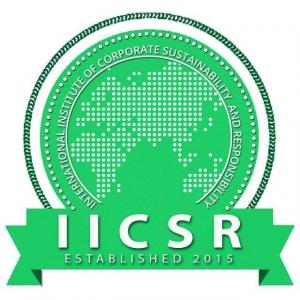Harsha Saxena, Founder and CEO IICSR: Accelerating the Net Zero Revolution, One Mind at a Time
Harsha Saxena leads IICSR in driving Net Zero awareness through education, global dialogues, and AI tools like Lynera.ai—empowering change, one person at a time
Founded in 2010, IICSR is a pioneering institution built on the belief that sustainability begins with knowledge. At a time when carbon accounting was barely part of the corporate vocabulary, Harsha Saxena envisioned a future where businesses, governments, and individuals could become agents of climate action through education and accountability. Today, that vision has grown into a global movement that’s transforming promises into plans—and plans into action.
From Headlines to Hands-On Action
Over the past decade, Net Zero commitments have surged. Industry leaders like Apple, Microsoft, Unilever, Tata Steel, Infosys, and Mahindra Group have pledged carbon neutrality by 2030–2040. Countries such as Canada, the United Kingdom, Japan, India, and the European Union have set Net Zero goals by 2050.
But Harsha Saxena sees a major challenge. “Understanding, implementing, and walking the talk on Net Zero is still rare,” she says. “The biggest barrier is not intent—but knowledge and capacity to execute.”
Building Trust in the Carbon Economy
As sustainability initiatives scale, concerns over greenwashing and credit verification have increased. To address these, IICSR organizes high-impact dialogues and expert-led webinars which can be watched on https://youtube.com/infoiicsr. Notable guests include:
Antti Vihavainen, Vice Chairman of Puro.earth, who explored methods to ensure the veracity of carbon credits.
Marion Giebel, Founder of DiPPa, who introduced the Digital Product Passport, a breakthrough tool for supply chain transparency.
These conversations focus on building trust, transparency, and credibility in global carbon markets.
Transforming Education into Empowerment
IICSR goes beyond theory with its suite of action-oriented professional courses designed to build real-world expertise. Key offerings include:
Certified Net Zero Practitioner Program
Carbon Markets and Carbon Blockchain
AI and Sustainability Integration
Master’s Level Programs in ESG, CSR, and Sustainability
These programs are tailored for executives, entrepreneurs, policy professionals, and sustainability officers who want to lead meaningful change in their organizations and sectors.
Expanding Global Reach
With successful footprints across the United States, Asia, and Africa, IICSR is now launching its Sustainability Dialogues in Europe. These in-person exchanges unite IICSR alumni, sustainability leaders, and change-makers to foster collaboration and innovation at the grassroots level.
Scaling Sustainability with AI
True to her forward-thinking ethos, Saxena is now leading the development of Lynera.ai—a conversational AI platform designed to democratize sustainability learning across all levels of the organization.
“Lynera.ai is built to reach the last employee in the deepest part of the organization,” Harsha Saxena explains. “We’re removing the barriers of jargon, access, and hierarchy by making sustainability learning conversational, contextual, and scalable.”
This integration of AI is not just about automation—it’s about acceleration. It ensures that sustainability isn’t just taught in boardrooms, but embedded across day-to-day operations.
About IICSR
The International Institute of Corporate Sustainability and Responsibility (IICSR) is a global education and research institute committed to building sustainable leadership. It is accredited by American council of training and development (ACTD), European association for higher education advancements (EAHEA) and MEPSC (A sector skills council under Ministry of skills and entrepreneurship by the Government of India). Since 2010, it has trained over 6,000 professionals and influenced ESG and Net Zero strategies and policy making in more than 150 companies across multiple continents.
Niteesha Kerkar
IICSR and Sustainability Knowledge Management
+1 628-278-3652
email us here
Visit us on social media:
LinkedIn
Instagram
Facebook
YouTube
X
Other
Legal Disclaimer:
EIN Presswire provides this news content "as is" without warranty of any kind. We do not accept any responsibility or liability for the accuracy, content, images, videos, licenses, completeness, legality, or reliability of the information contained in this article. If you have any complaints or copyright issues related to this article, kindly contact the author above.
Overdrive Digital Marketing Launches Plan with Free Website, SEO, and Google Ads
PipeDreams Acquires H&H Heating & Air Conditioning, Expanding Footprint into Greater Philadelphia
Rayo Credit participará en el Fintech Summit CR 2025: tecnología y datos para la inclusión financiera
Więcej ważnych informacji
 Jedynka Newserii
Jedynka Newserii

 Jedynka Newserii
Jedynka Newserii

Konsument

Tylko 35 proc. Celów Zrównoważonego Rozwoju ONZ możliwe do osiągnięcia przed 2030 r. Potrzebna ściślejsza współpraca międzynarodowa
Jak wynika z raportu ONZ, choć w ciągu ostatniej dekady dzięki dążeniu do realizacji przyjętych celów udało się poprawić życie milionów ludzi na całym świecie, to jednak tempo zmian pozostaje zbyt wolne, by dało się je osiągnąć do 2030 roku. Postęp hamują przede wszystkim eskalacja konfliktów, zmiana klimatu, rosnące nierówności i niewystarczające finansowanie. Jak wynika ze sprawozdania Parlamentu Europejskiego, problemem jest także brak ścisłej współpracy międzynarodowej i sceptyczne podejście niektórych państw ONZ.
Przemysł spożywczy
UNICEF: Wszystkie dzieci poniżej piątego roku życia w Gazie cierpią z powodu niedożywienia. Sytuacja jest katastrofalna

Ataki Izraela na Strefę Gazy i jej izolacja doprowadziły do całkowitego załamania podstawowych usług i ograniczenia możliwości dostaw i dystrybucji pomocy humanitarnej – wskazuje UNICEF. W efekcie setki tysięcy Palestyńczyków są w sytuacji ciągłego zagrożenia życia i cierpią z powodu niedożywienia i głodu. Ta klęska dotyczy praktycznie wszystkich dzieci poniżej piątego roku życia. Konflikty są jednym z głównych przyczyn braku bezpieczeństwa żywnościowego, głodu i niedożywienia na świecie. Szczególnie dotyczy to Afryki i Azji Zachodniej.
Prawo
Branża ciepłownictwa czeka na unijną i krajową strategię transformacji. Liczy na większe fundusze i korzystne regulacje

Komisja Europejska zapowiedziała rozpoczęcie w I kwartale 2026 roku prac nad strategią dla ciepłownictwa i chłodnictwa. Nad tym strategicznym dokumentem w zakresie ciepłownictwa pracuje także polski rząd. Branża podkreśla, że obie te strategie będą miały kluczowe znaczenie dla trwającej transformacji w ciepłownictwie, czyli przyszłości ogromnych inwestycji, które czekają sektor do 2050 roku. Jednocześnie apeluje o większe wsparcie tego procesu ze środków publicznych.
Partner serwisu
Szkolenia

Akademia Newserii
Akademia Newserii to projekt, w ramach którego najlepsi polscy dziennikarze biznesowi, giełdowi oraz lifestylowi, a także szkoleniowcy z wieloletnim doświadczeniem dzielą się swoją wiedzą nt. pracy z mediami.



![Nestlé w Polsce podsumowuje wpływ na krajową gospodarkę. Firma wygenerowała 0,6 proc. polskiego PKB [DEPESZA]](https://www.newseria.pl/files/1097841585/fabryka-nesquik_1,w_85,r_png,_small.png)






.gif)

 |
| |
| |
|